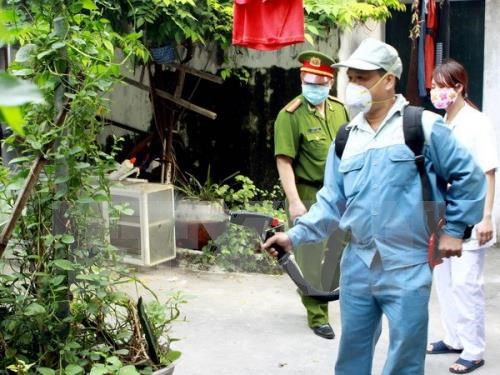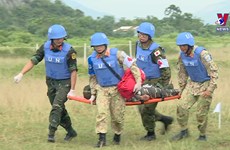No case of Zika virus reported in Vietnam
No cases of the Zika virus have been recorded in Vietnam so far, the Preventive Medicine Department under the Ministry of Health said on February 27.
 Illustrative image (Source: VNA)
Illustrative image (Source: VNA)The Ho Chi Minh City-based Pasteur Institute reported that samples taken from dengue patients in 2015 tested negative for Zika.
In early 2016, 83 patients from localities that have a high prevalence of Aedes mosquitoes – the main transmitter of the virus – with symptoms similar to Zika also tested negative for the virus, according to the institute.
The department, however, warned that there was a high risk the virus could enter the country.
The ministry will continue collecting samples from suspected cases in localities to detect the disease and prevent it from spreading.
It advised pregnant women or those who want to get pregnant in the next six months not to travel to Zika-hit countries listed at the department’s website http:www.vncdc.gov.vn..
Travellers from Zika-striken countries should keep an eye on their health within 12 days since their arrival to Vietnam. They should go to medical facilities when they begin to experience unusual symptoms, the ministry said.
People are recommended to use mosquito repellent and securely cover all containers of water to prevent mosquitoes from entering them and laying eggs.
The ministry also set up a hotline on the Zika virus: 0989671115.
Zika is mainly transmitted through the Aedes Aegypti mosquito, which also carries dengue fever. The virus has been linked to microcephaly, a condition that causes babies to be born with unusually small heads and, in the vast majority of cases, brain damage. Currently there is no vaccine or specific medicine to treat Zika.
The virus is characterised by a low-grade fever (from 37.5 degree Celsius to 38 degree Celsius). The symptoms are similar to other arbovirus infections such as dengue and include skin rashes, muscle pain, joint pain with possible swelling (notable in small joints in hands and feet), headaches, conjunctivitis and malaise. The incubation period is usually between three and 12 days.
According to the European Centre for Disease Prevention and Control , by February 25, the virus had circulated in 43 countries and territories, mostly in South America, the Caribbean and the Pacific Ocean.-VNA













